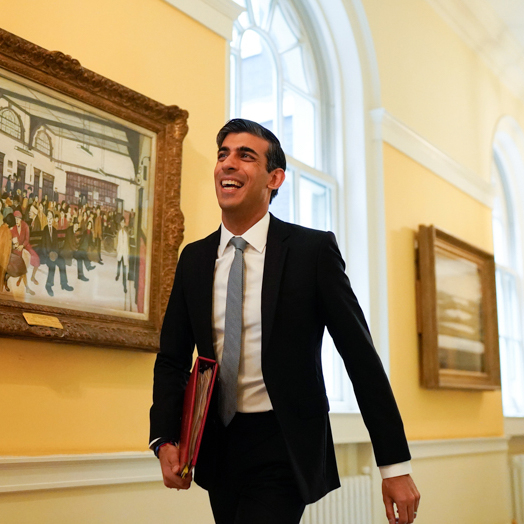Before the burnish-filter Instagram shots, before GQ devoted a page to the cut of his lapel, before he autographed – like a quality-control stamp – his Treasury policies on Covid, even before the frenzy at his every utterance, like it was the Fonz up there on the afternoon press conference podium, and not the chancellor of the exchequer, there was a moment when Rishi Sunak was nervous.
It was late November. He had been chosen to stand in for Boris Johnson during a seven-way TV election debate on the BBC. Inside Westminster, it was a move that fanned the persistent rumors that Dominic Cummings, the PM’s chief adviser, wanted him to replace Sajid Javid as chancellor. In the country, no one had really heard of him. Sunak’s answer to this pressure? Call Amber Rudd. The former home secretary had stood in for Theresa May during the 2017 election debates. “He told me en passant that he’d watched all the debates,” Rudd says. “He’d done his research. And he said that I was very good, and I was flattered. And so I gave him advice, tips, and then I said, ‘Of course, you have to go off-script sometimes.’ And he said, ‘Yeah.’ Then, ‘No. I’m not going to do that.’ ”

